The mortgage world can be an overwhelming topic to navigate, especially when you’re new to the country. Luckily for you, you’ve stumbled across the right collective of real estate professionals who can help you every step of the way from understanding how mortgages work, and what mortgage options are the best solutions for you, to figuring out how to get the lowest mortgage rate possible.
First off, what is a mortgage?
A mortgage is a legal agreement by which a bank or other creditor lends money at interest in exchange for taking the title of the debtor’s property, with the condition that the conveyance of title becomes void upon the payment of the debt. In basic terms, the bank gives you money and charges you a percentage of the overall amount as their payment for lending you the money you need to buy a house.
You can choose between a variable-term mortgage or a fixed-term mortgage. A variable-term mortgage fluctuates in interest rates depending on the current market. If mortgage rates are low and interest rates are going down, then a variable-term mortgage can be a great option. However, if interest rates increase due to inflation, then you may be paying more money than you intended to or budgeted for. A fixed mortgage rate features an interest rate that doesn’t change over your mortgage term. If you would like to swap between a fixed mortgage rate or a variable mortgage rate, you would have to refinance or search for another lender. Because you sign a contract with the lender agreeing to their terms, it can be pricey to get out of a contract due to legal restrictions without paying a penalty fee.
In order to get pre-approved for a mortgage, you have to supply many documents to prove things like your employment history, they will also review your credit score, any other loans, and so on. It can be a lengthy process which is why it’s best to work with a professional. Being new to the country you may not have an employment history or a credit score to prove your ability to pay back any loan they provide you. This is why working with a mortgage broker experienced in assisting newcomers to Canada is an excellent idea.
Now that we have got the basics out of the way, how is a mortgage different for new immigrants?
Many mortgage lenders and banks have special initiatives for newcomers to Canada. They may have more lenient guidelines than traditional mortgages for those without Canadian credit or employment history. However, in order to be considered for these special parameters, you must be new to Canada within the last 5 years to be considered a new immigrant.
Would you qualify for a newcomers mortgage?
Mortgages for those new to Canada can be insured against mortgage default by the Canada Mortgage and Housing Corporation (CMHC), or Sagen. These insurers all have basic borrower qualifications. In order to be considered a newcomer, you must have immigrated to Canada within the last 5 years. If you’ve been in Canada for longer than 5 years, you are no longer considered to be a new immigrant. You must also have legal status in Canada to qualify, and at least 3 months of full-time employment history in Canada, unless you are being relocated to Canada by your current employer.
You also need a good debt service ratio which shows how much of your income goes towards your debt and how much regular cashflow you have to spend. The lower the percentage, the better. You will need a gross debt service ratio (GDS) of 39% or less and a total debt service ratio (TDS) of 44% or less.
In addition, you would also need to pass a mortgage stress test that shows that if mortgage rates increase, you would still be able to afford your home. This ensures that you aren’t making a poor financial decision and can actually afford to live in Canada. The mortgage stress test rate is used to test your GDS and TDS ratios. Your foreign debt is included when calculating your GDS and TDS, but your foreign rental income is not included.
How do down payments work?
Non-permanent residents may have higher down payment requirements because they won’t have been in Canada for as long, so it may make more sense to rent out a place if you’re not here long-term. The minimum down payment can be as low as 5% for homes valued at less than $500,000, or 35% or more if you don’t have any credit history in Canada.
What are the steps to getting a mortgage in Canada as an immigrant:
First off, learn how much you can afford before buying a home. The housing market is at the highest that it has ever been. It would be a shame to move all the way over here and have to sell your home due to your finances. If you’re serious about buying a home it’s time to sit down and really figure out a budget. You can use our calculators to find out how much you could afford and how much of a down payment you would need.
Secondly, build your Canadian credit history to get a better mortgage rate. This can be as simple as paying your phone or cable bills on time regularly. Many banks also offer free credit cards to newcomers that have no credit history. This allows you to start establishing a credit history so you can build your credit score.
Thirdly, get pre-approved for a mortgage before you start house hunting. This gives lenders confidence that you will not only be able to afford your home but, that they won’t have to worry about your finances being a high-risk liability to them. It also makes house hunting much easier when all the paperwork is already done with your financing in place so that when you find the home you want to buy you can confidently and quickly make an offer.
Lastly, work with Shirriff Wells Real Estate. We will help you through the entire process of finding your dream home in the GTA and our leading-industry advice will help you navigate the home buying process in Canada with ease. To get started today message us for a free consultation to learn more about immigrating to Canada and how to get your hands on the keys to your new home.


